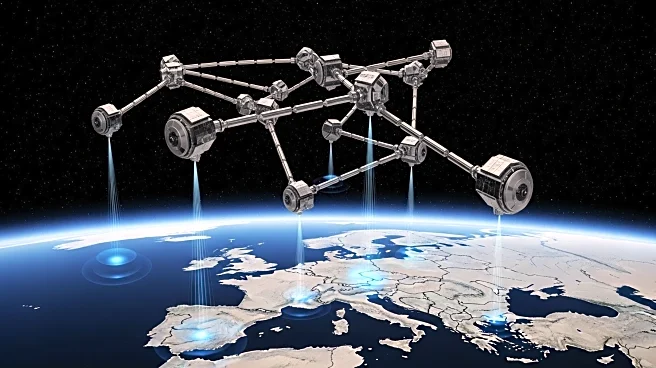What's Happening?
Russia has been accused of GPS jamming, affecting communications with planes, ships, and drones in Nordic and Baltic nations, including Finland, Latvia, Lithuania, and Estonia. The jamming is reportedly defensive, aimed at protecting Russian cities and military infrastructure from Ukrainian drone attacks. However, Baltic officials have noted increased electronic interference causing navigation failures far from Russia's borders. This has led to bans on drone flights near Russian borders and warnings to civilian drone pilots about signal stability. The interference has also affected maritime navigation, with Sweden's Maritime Administration warning sailors to use radar or landmarks for navigation.
Why It's Important?
The GPS jamming by Russia poses significant risks to aviation and maritime safety in Europe, potentially leading to navigation failures and accidents. It highlights the growing use of electronic warfare tactics in geopolitical conflicts, raising concerns about the safety and reliability of satellite navigation systems. The interference could disrupt civilian and military operations, affecting trade and security in the region. The situation underscores the need for robust countermeasures and international cooperation to address electronic warfare threats and ensure safe navigation.
What's Next?
Baltic nations have already taken steps to mitigate the impact of Russian jamming by banning drone flights in certain areas and advising pilots on signal stability. Further international collaboration may be necessary to develop technologies and strategies to counteract electronic interference. The issue may also prompt discussions within NATO and the EU on enhancing security measures and sharing intelligence to protect against such threats.
Beyond the Headlines
The use of GPS jamming by Russia reflects broader geopolitical tensions and the increasing reliance on electronic warfare in modern conflicts. It raises ethical and legal questions about the use of such tactics and their impact on civilian infrastructure. The situation may lead to long-term shifts in how countries approach electronic warfare and satellite navigation security.









